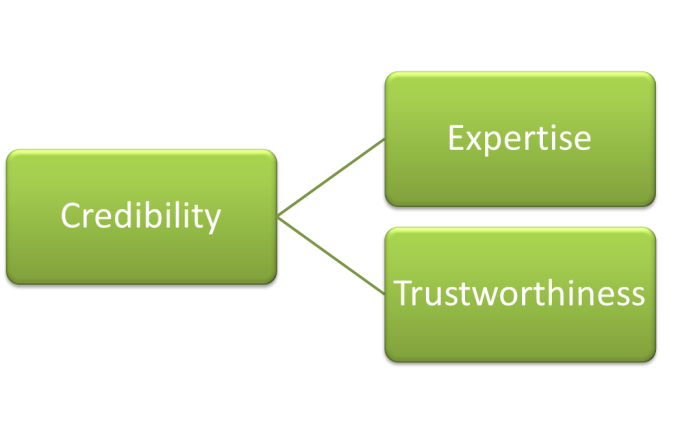 As many of you know, my company launched a new division to help people navigate their health journey through advocacy. In developing the company, we realized that we needed a couple of key partners to get this accomplished and I wanted to elaborate on the behavior of one because their handling of a situation is interesting to me.
As many of you know, my company launched a new division to help people navigate their health journey through advocacy. In developing the company, we realized that we needed a couple of key partners to get this accomplished and I wanted to elaborate on the behavior of one because their handling of a situation is interesting to me.
The vendor bid on our project and mentioned that they would be willing to do it almost for free because they were not busy and needed the work for their team. We realized that letting them take the project on for free would not work and agreed on a fair price.
The project was moving along for about three weeks before the company had a huge bid accepted for another job. We realized our project would get less attention and continued to support our vendor’s activities even though they were not moving as quickly as we wanted.
The vendor scheduled weekly status meetings where instead of discussing project related issues, we were given their company’s CV and how much a larger company would have charged for this project. This went on for about 8 weeks before the vendor decided to let us know that we were a low priority for the firm now that they were busy, and they would only work on the project when they could fit it in.
We told the vendor we appreciated their honesty, and would it be possible to have the project back since we need it finished. What happened next was appalling. To date we have received 6 emails scathing our company and me personally because we did not want them to finish the project. One email asked, “How dare I?” and another questioned my integrity and loyalty- funny considering they fired us. Then we received an email saying basically they had to finish the project because of how it was developed as if the other 6 emails were never sent.
While we are still working through this, I found several best practices were ignored. The first was be careful what you put in writing. If I was more vindictive, I could have posted these emails and in effect would have ruined their company. Limit your communications to the pertinent facts in a case. Flying off the handle does not achieve anything positive.
The second is honor your commitment or work towards a compromise as soon as possible. Once the vendor took on the new job, we should have been given the option of dealing with a slower timeline or taking our project elsewhere. Or the vendor should have worked quickly to get our project off their plate. Lamenting that they were not making money on the project and insulting us was not the solution.
The third lesson is on my end- be careful who you decide to give a break to. Our collective guts told us that the vendor would be able to handle the project, but it would be painful. Boy, were we right. We liked them at their initial meetings and figured we were helping them as much as they were helping us. We were so wrong there.
Honest communication between and within both companies may have helped avoid this situation. Both companies wanted to help each other, but their vision of help couldn’t be more different.
 I work with a special needs sports program in my town. One of my roles is to explain to our teenaged volunteers how we want them to interact with our athletes and what kinds of behavior are acceptable. The class is a little heavy handed as we feel that our culture of kindness is the paramount reason why we are able to have success.
I work with a special needs sports program in my town. One of my roles is to explain to our teenaged volunteers how we want them to interact with our athletes and what kinds of behavior are acceptable. The class is a little heavy handed as we feel that our culture of kindness is the paramount reason why we are able to have success.  I was thinking about the horrible situation at Michigan State University and USA Gymnastics. It was an institutional epic fail that is a classic case of no one stepping up to be the leader. Everyone focused on their personal agendas and did not look to be the one to stand above the madness.
I was thinking about the horrible situation at Michigan State University and USA Gymnastics. It was an institutional epic fail that is a classic case of no one stepping up to be the leader. Everyone focused on their personal agendas and did not look to be the one to stand above the madness. I had a little misstep in my class the other day. I shredded the attendance sheet before I had a chance to input it into my spreadsheet. So, I did what every trusting professor would do, I asked the students at the next class to mark whether they attended the previous class. Then a funny thing happened. Only one person who missed the class was truthful and marked herself absent.
I had a little misstep in my class the other day. I shredded the attendance sheet before I had a chance to input it into my spreadsheet. So, I did what every trusting professor would do, I asked the students at the next class to mark whether they attended the previous class. Then a funny thing happened. Only one person who missed the class was truthful and marked herself absent. I was listening to Wharton Radio on Sirius/XM last week and a listener was calling to complain about an unmotivated, know it all subordinate. Quickly into the discussion, it became apparent that the problem was with the manager as much as the employee. The caller twice interrupted the host who was suggesting potential course of action to dismiss their ideas as trite.
I was listening to Wharton Radio on Sirius/XM last week and a listener was calling to complain about an unmotivated, know it all subordinate. Quickly into the discussion, it became apparent that the problem was with the manager as much as the employee. The caller twice interrupted the host who was suggesting potential course of action to dismiss their ideas as trite. No, I was not watching Frozen this weekend, but rather was thinking about the unrest that festers in the workplace. More and more people are feeling slighted and holding onto these perceived slights to the detriment of their health and the health of their team.
No, I was not watching Frozen this weekend, but rather was thinking about the unrest that festers in the workplace. More and more people are feeling slighted and holding onto these perceived slights to the detriment of their health and the health of their team. As many of you know, my daughter has started college this Fall. Her workload is daunting as she majors in physics and music. Not surprisingly, about a week ago, I got the call. “Dad, we need to talk.” Like every other freshman, her world has been turned upside down. Surrounded by tons of people 24/7, but not really knowing any of them, suddenly having freedom, but buried with school work, she was living the avalanche.
As many of you know, my daughter has started college this Fall. Her workload is daunting as she majors in physics and music. Not surprisingly, about a week ago, I got the call. “Dad, we need to talk.” Like every other freshman, her world has been turned upside down. Surrounded by tons of people 24/7, but not really knowing any of them, suddenly having freedom, but buried with school work, she was living the avalanche. There is a certain image of a fearless leader. Maybe it’s General Patton storming through Europe in World War II or Tom Brady putting his team on his back to win a Super Bowl. Then when asked about their victory, they tell you how they always knew they’d be victorious and there was never a doubt in their mind about it.
There is a certain image of a fearless leader. Maybe it’s General Patton storming through Europe in World War II or Tom Brady putting his team on his back to win a Super Bowl. Then when asked about their victory, they tell you how they always knew they’d be victorious and there was never a doubt in their mind about it. Monday marked the unofficial end of summer. No more cruising to the beach, laid back office vibes on Fridays and Mondays, and vacationing co-workers. Starting today, you are in the home stretch for your year. Time to dust off your review, goals, and bonus plans and measure where you are compared with where you are supposed to be. Look at your team’s metrics as well and do a similar analysis. The put plans together to achieve all of the collective goals.
Monday marked the unofficial end of summer. No more cruising to the beach, laid back office vibes on Fridays and Mondays, and vacationing co-workers. Starting today, you are in the home stretch for your year. Time to dust off your review, goals, and bonus plans and measure where you are compared with where you are supposed to be. Look at your team’s metrics as well and do a similar analysis. The put plans together to achieve all of the collective goals.